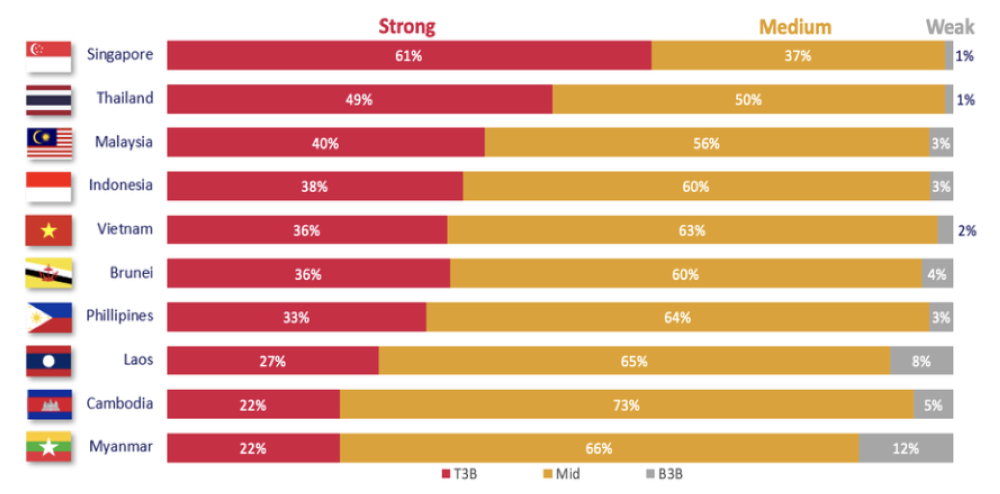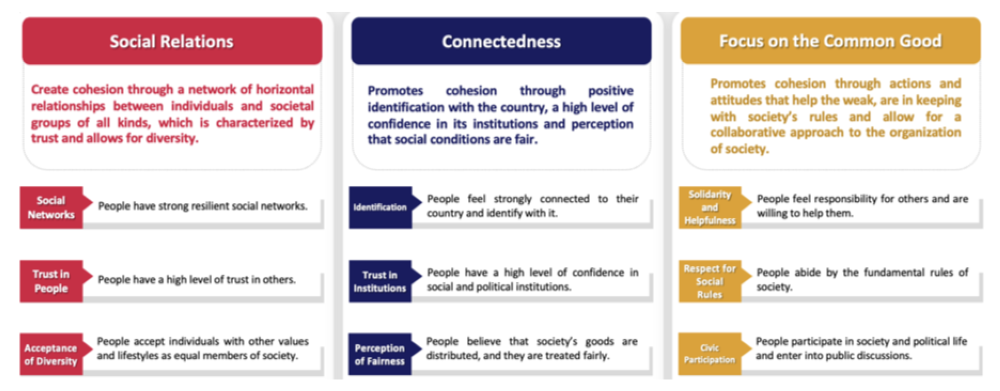SINGAPORE, Sept 7 — A recently published study has cited a shared national identity and acceptance of diversity among Malaysians as the two biggest factors behind “social cohesion” in Malaysia, fostering its society’s sense of solidarity and togetherness.
The “South-east Asian Social Cohesion Radar” released by Singapore’s S. Rajaratnam School of International Studies (RSIS) yesterday also found that Malaysian respondents did not rate the “feeling of fairness” much, rating it as having the smallest role in keeping harmony in the country.
“Acceptance of diversity and identification were the two dimensions that were viewed as the most important in building social cohesion in Malaysia,” said the report released during the second International Conference on Cohesive Societies (ICCS) here.
“The dimensions of social networks, trust in people, respect for social rules, and civic participation had a similar impact on social cohesion in the country. The solidarity and helpfulness dimension had the weakest impact.”
“Identification“ is defined as the public “feeling strongly connected to their country and identify with it” .
“Acceptance of diversity” refers to the public “accepting individuals with other values and lifestyles as equal members of society”.

In addition, Malaysian respondents regarded identity as playing an important role in their society, with 86 per cent saying it was easy to identify themselves from citizens of a different linguistic group.
Religious identities also were deemed to be important to the respondents, with 86 per cent as well saying they agreed with the notion.
“In Malaysia and Singapore, the dimension of identification was a key driver of social cohesion. Identification refers to the sense of belonging that people feel towards their country and their ability to identify with the state,” it said.
With “perception of fairness” playing a minor role in Malaysia’s social cohesion, the report highlighted that fairness had a strong influence on social cohesion as countries that scored the lowest were ranked at the bottom of the radar.
It pointed to the affirmative action policies in Malaysia which were institutionalised after the 1969 racial riots, which it said have since safeguarded Malays and placed non-Malays at a disadvantage.
It also highlighted that Islam has become an increasingly mobilising factor of Malaysian politics in the 21st century, therefore sidelining non-Muslims.
The study also showed that Malaysian respondents felt that their country has the highest level of social cohesion, but this perception ran counter to the other respondents.

Regionally, Malaysia was perceived as having the third strongest social cohesion in the region behind Singapore and Thailand, with just 40 per cent of respondents seeing Malaysian society as having a strong cohesion.
Overall, 69 per cent of respondents felt that there is strong social cohesion in South-east Asia.
The study defines “social cohesion” as “the state of affairs in which there are stable interactions among members of a society that take place in various domains of human associate life”.
Put simply, this is also known as social harmony, unity or inclusion.
Adapting the prior Bertelsmann Stiftung Asian Cohesion Radar to make it more relevant to the region, the RSIS study measured nine dimensions that contribute toward social cohesion: social networks, trust in people, acceptance of diversity, identification, trust in institutions, perception of fairness, solidarity and helpfulness, respect for social rules, and civic participation.

It was conducted between February 10 and April 6, 2022, involving 100 participants deemed “thought leaders” in each of the 10 countries in the region. The 20-minute survey was done online or over the phone, and was also available in the Malay language besides English.
Of the total, 40 per cent of Malaysian respondents came from academia, think tanks and research institutions, followed by 21 per cent from the government and 20 per cent from the business and finance section.
“As we got out of Covid many of us have gone through lockdown and social distancing measures. Everyone has been apart for a while, it’s time to evaluate and understand how social cohesion at the moment, and how we can move forward,” said its co-author, RSIS senior analyst Vishalini Suresh at the sidelines of the ICCS 2022.
“We can think about expanding the model, including things like economics into the framework. As a whole we collectively agree that social cohesion is a work in progress, there’s always work to do,” her fellow author, RSIS adjunct senior fellow Jolene Jerard commented on the study’s future.
RSIS is a think tank and professional graduate school of international affairs at the Nanyang Technological University, Singapore.
Among others, its research focus includes Asia-Pacific security, conflict and terrorism.





















